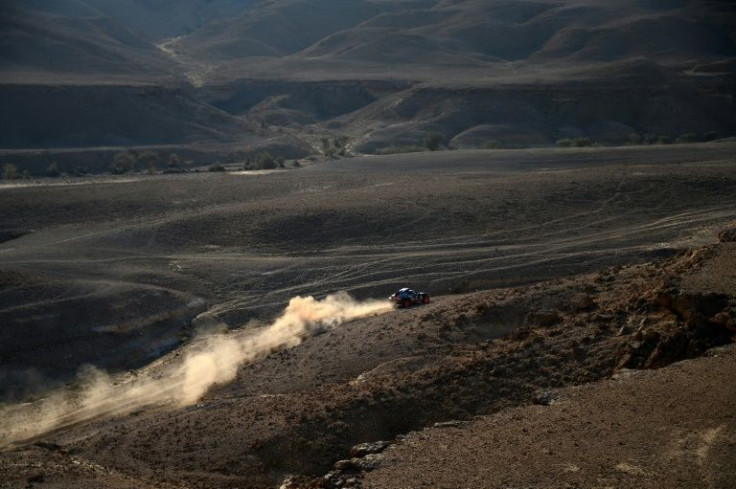Dakar Rally Blast 'Embarrassment' For Saudi Arabia: Analysts
An explosion that badly injured a French driver at the Dakar rally has embarrassed Saudi Arabia, which is seeking to position itself as a global sports hub, analysts said.
French Foreign Minister Jean-Yves Le Drian said Friday that Paris was considering cancelling the rally under way in the kingdom.
His comments come after French prosecutors said Tuesday that they had opened a terrorism probe over the December 30 blast.
Driver Philippe Boutron, 61, was seriously wounded in the explosion, which the Saudi authorities insist was accidental.
Boutron's son said Thursday that his father had emerged from a coma although both his legs remain "badly injured" and will need surgery.
"This was a tough blow for the organisers and for Saudi Arabia," said Pascale Boniface, head of the French Institute for International and Strategic Affairs (IRIS).
A specialist in the geopolitics of sports, Boniface said organisers had moved the rally away from its original trans-Saharan route in the hope of avoiding security threats.
Last week's explosion had raised concerns for the safety of the race, "including in a country which was thought to be secure", he told AFP.
The famous race, originally known as the Paris-Dakar, now just as The Dakar, used to be staged from the French capital across the Sahara to the Senegalese capital.
But security threats along the routes through North Africa meant that from 2009 it was held in South America and since 2020 it has been held in Saudi Arabia.
The final stage of this year's edition -- known as the Dakar 2022 -- is scheduled to take place on January 14.
But France is now weighing its cancellation.
"We thought that maybe it's best to abandon this sporting event... the question remains open," Le Drian told BFM television.
"There was potentially a terror attack against the Dakar," he said.
Saudi Arabia has not commented directly on the terrorism investigation launched by France and the kingdom's largely state-controlled media have stayed silent.
But in a statement carried by the official Saudi Press Agency late Friday, the foreign ministry insisted that the results of the investigation so far did not indicate any "suspicion of a crime".
Boniface said the Saudi approach was unlikely to ease concerns.

"The strategy of keeping silent, or of denial, on the part of the authorities only increases suspicion," Boniface said.
"It reflects embarrassment and shows that the authorities don't know how to react to an event that has taken them by surprise."
Thierry Richard, who was one of five passengers in Boutron's car at the time of the explosion, told AFP on Tuesday that he had no doubt it was deliberate.
"It was an attack, they blew us up," he said.
The force of the blast lifted the car off the ground and it immediately caught fire, Richard said.
Security around the rally has been tightened and participants said they were being extra careful.
"We have tightened security in the tents and hotels, and around the starts and finishes," race director David Castera said Friday.
David Des Roches, an expert on security issues in the Arabian peninsula, agreed that the explosion was a blow to Saudi "prestige".
"The Saudis are getting these big events by overpaying, and that gives them stature on the world stage," said the associate professor at the Near East South Asia Center for Security Studies.
"After an attack like this, they'll have to overpay more," he said.
According to Des Roches "there's no end of possible motives" for such an attack.
"Anyone who wants to do damage to the kingdom has an interest in disrupting one of these 'prestige' events so as to damage the kingdom," he said.
"It's possible it was done by fundamentalist groups, who see this as an intrusion into the kingdom's traditional values," he added.
The rise of Saudi Arabia's de facto ruler, Crown Prince Mohammed bin Salman, in 2017, has ushered in a number of reforms.
Saudi leaders have been pushing efforts to change the kingdom's conservative image and diversify its economy.
A social shift has seen Saudi Arabia end bans on music, dancing, women driving and allow mixed-gender concerts and other events.
But critics and human rights groups have said the kingdom is using high-profile sports and entertainment events to whitewash its poor human rights record, including the 2018 killing of dissident journalist Jamal Khashoggi inside the Saudi embassy in Istanbul.
"Some of the kingdom's foreign enemies could have done this to embarrass the kingdom and scare off other prestige events," Des Roches said.
© Copyright AFP 2024. All rights reserved.





















